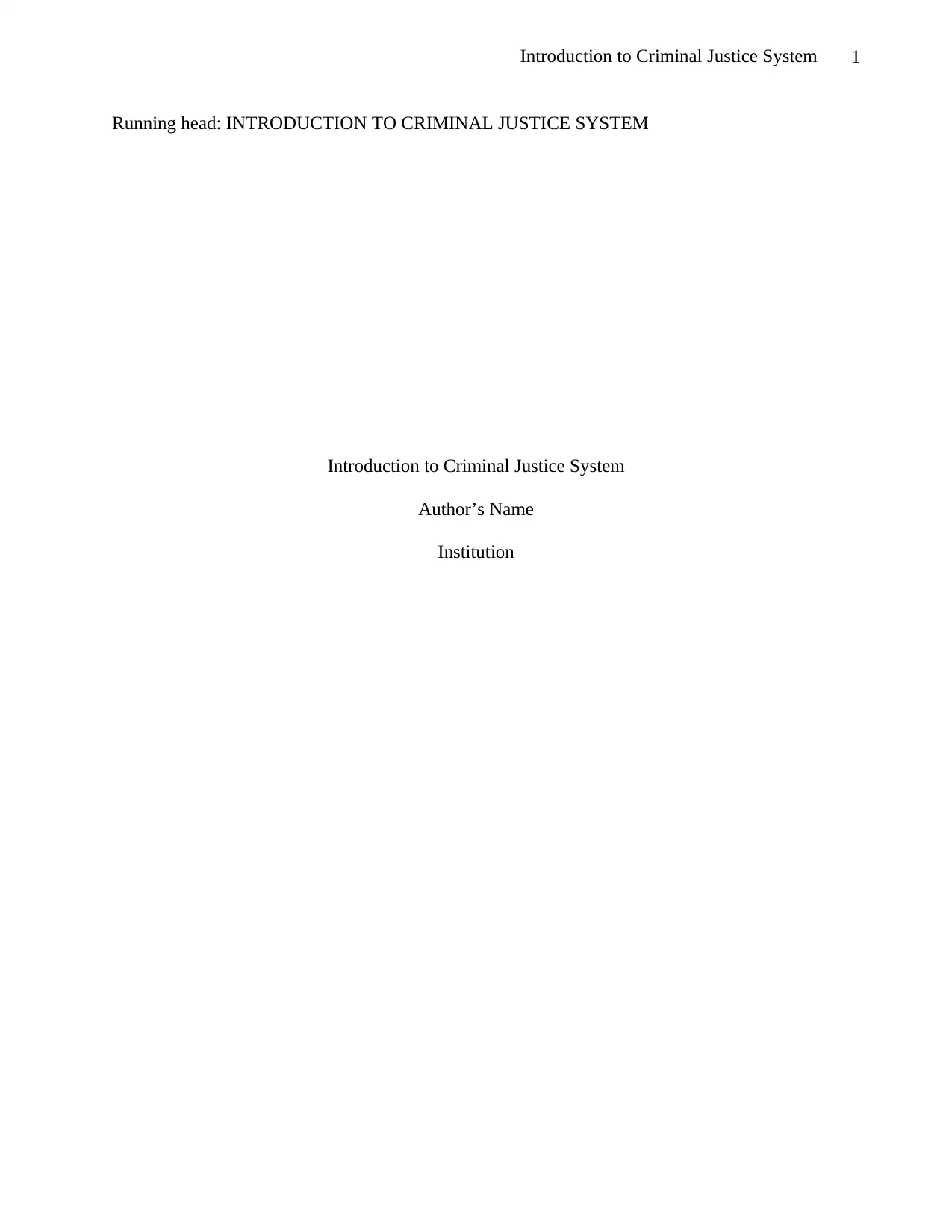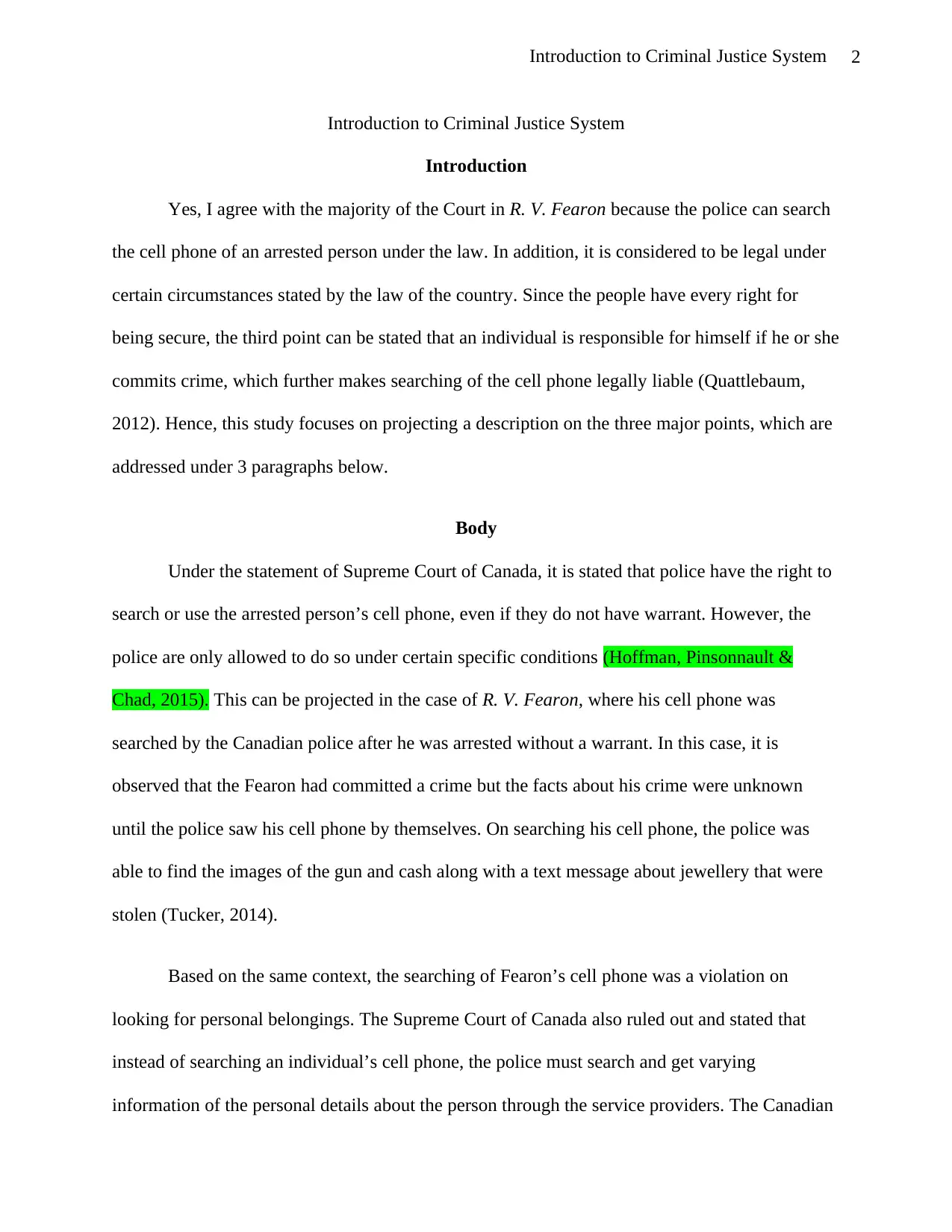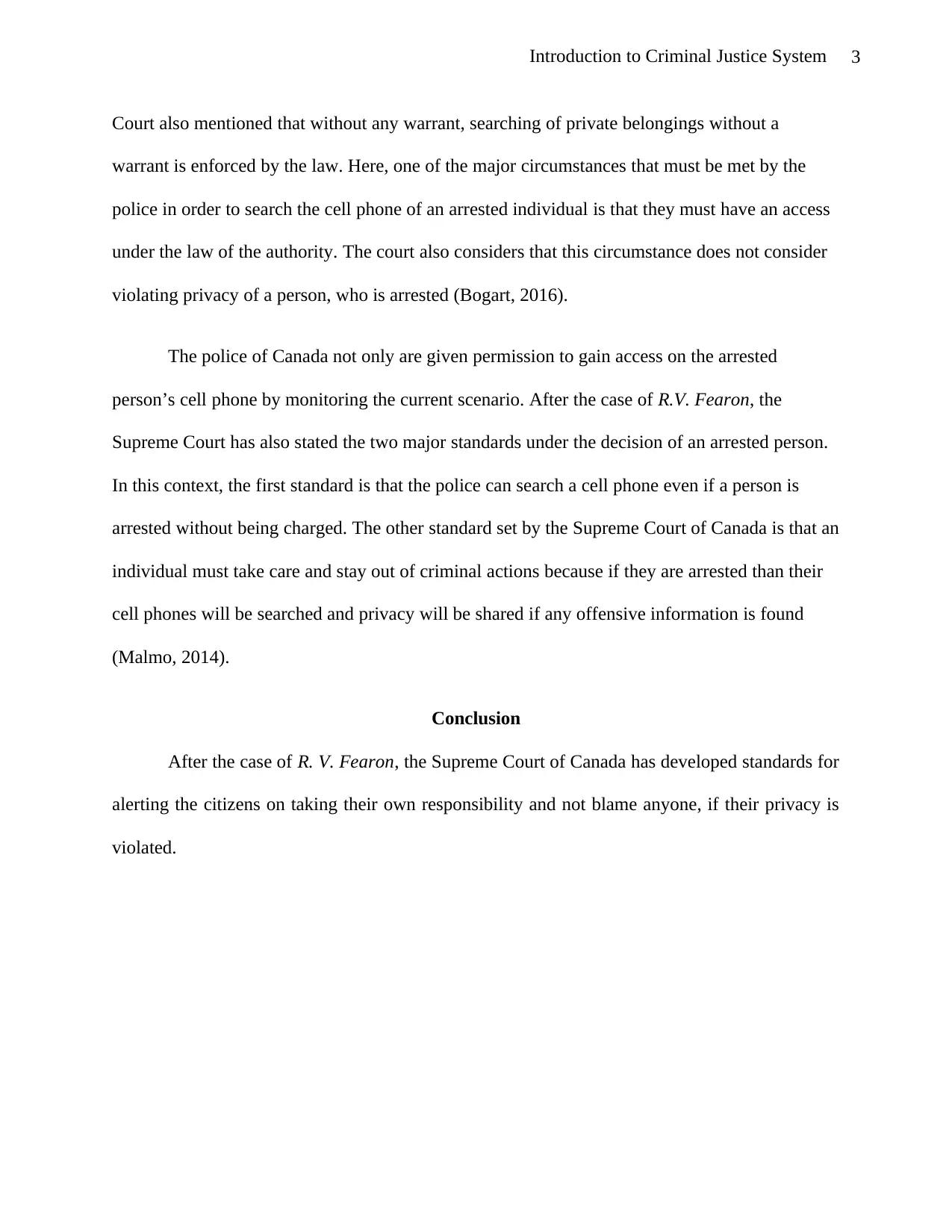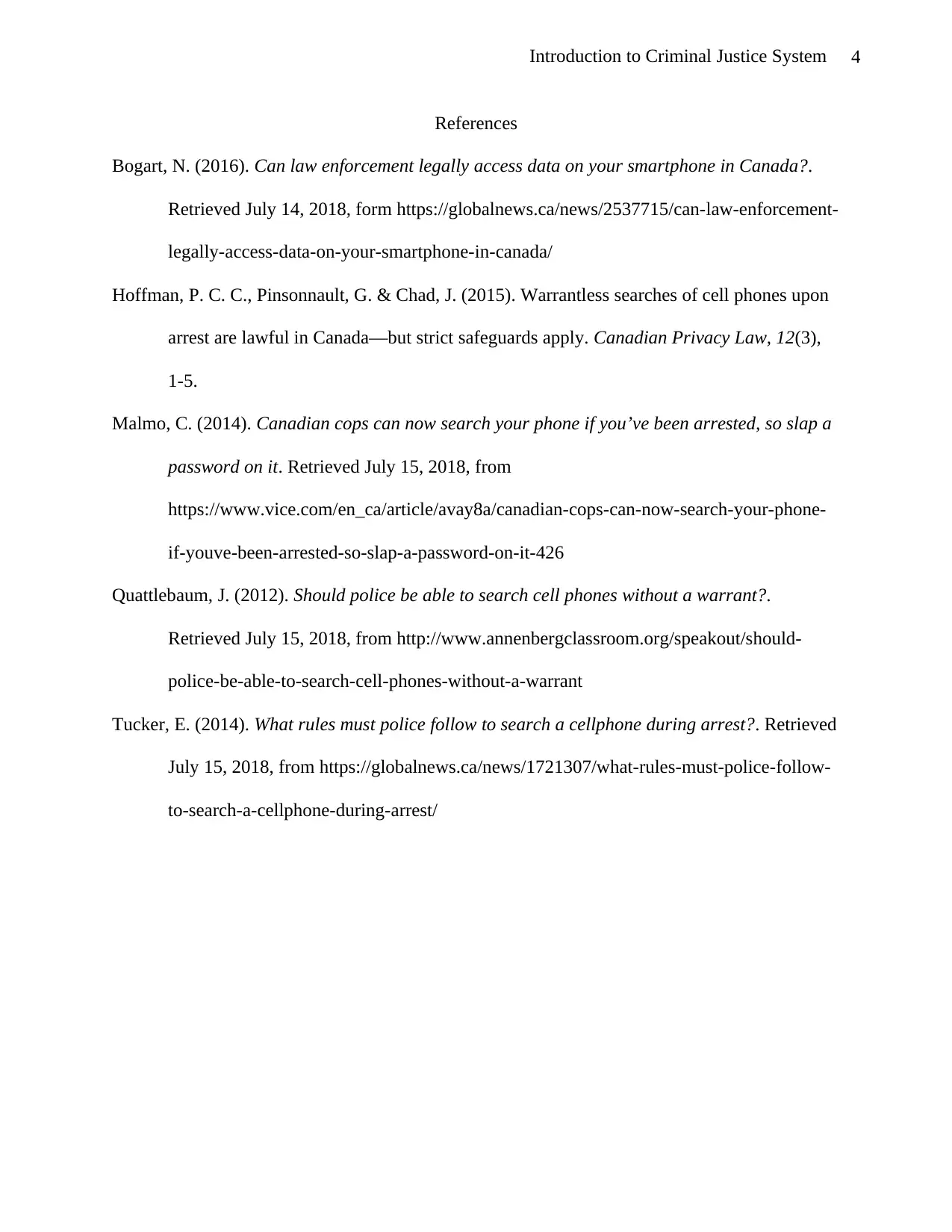Case Study: Examining the R. V. Fearon Decision on Cell Phone Searches
VerifiedAdded on 2023/06/10
|4
|818
|484
Case Study
AI Summary
This case study analyzes the R. V. Fearon decision by the Supreme Court of Canada regarding the legality of police searches of cell phones incident to arrest. The paper discusses the circumstances under which such searches are permissible, highlighting the balance between law enforcement needs and individual privacy rights. It references the Supreme Court's ruling that police can search an arrested person's cell phone under specific conditions, even without a warrant, but emphasizes the importance of adhering to legal safeguards. The analysis covers the facts of the Fearon case, where a cell phone search led to the discovery of incriminating evidence, and discusses the implications of this decision for personal privacy and police powers in Canada. The study concludes by emphasizing the responsibility of citizens to avoid criminal activity to protect their privacy, in light of the legal standards established after R. V. Fearon.
1 out of 4











![[object Object]](/_next/static/media/star-bottom.7253800d.svg)